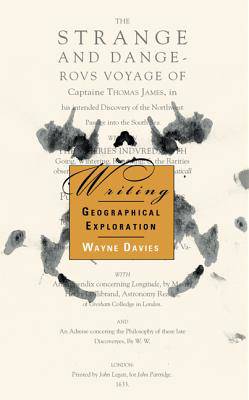
Bedankt voor het vertrouwen het afgelopen jaar! Om jou te bedanken bieden we GRATIS verzending (in België) aan op alles gedurende de hele maand januari.
- Afhalen na 1 uur in een winkel met voorraad
- Gratis thuislevering in België vanaf € 30
- Ruim aanbod met 7 miljoen producten
Bedankt voor het vertrouwen het afgelopen jaar! Om jou te bedanken bieden we GRATIS verzending (in België) aan op alles gedurende de hele maand januari.
- Afhalen na 1 uur in een winkel met voorraad
- Gratis thuislevering in België vanaf € 30
- Ruim aanbod met 7 miljoen producten
Zoeken
€ 86,95
+ 173 punten
Omschrijving
Writing Geographical Exploration: Thomas James and the Northwest Passage, 1631-33 summarizes the various factors that influence the writing and interpretation of exploration narratives, demonstrating the limitations of the assumption that there is a direct relationship between what the explorer saw and what the text describes. Davies offers a revisionist evaluation of Captain Thomas James, who spent eighteen months in search of the Northwest Passage in the 1630s, to illustrate how modern textual analysis can enrich the appreciation of a traveller's account. Though James's work has been dismissed in the modern period, his work was highly regarded in previous centuries by scientist Robert Boyle and poet Samuel Coleridge. James was not a first-rank explorer, but he was an able navigator and leader, a perceptive scientific observer, and a master author who produced a thrilling tale of adventure that should occupy a more prominent place in exploration writing and history, literary theory, and post-modern geography.
Specificaties
Betrokkenen
- Auteur(s):
- Uitgeverij:
Inhoud
- Aantal bladzijden:
- 344
- Taal:
- Engels
- Reeks:
- Reeksnummer:
- nr. 5
Eigenschappen
- Productcode (EAN):
- 9781552380628
- Verschijningsdatum:
- 30/03/2004
- Uitvoering:
- Hardcover
- Formaat:
- Genaaid
- Afmetingen:
- 207 mm x 260 mm
- Gewicht:
- 911 g

Alleen bij Standaard Boekhandel
+ 173 punten op je klantenkaart van Standaard Boekhandel
Beoordelingen
We publiceren alleen reviews die voldoen aan de voorwaarden voor reviews. Bekijk onze voorwaarden voor reviews.









